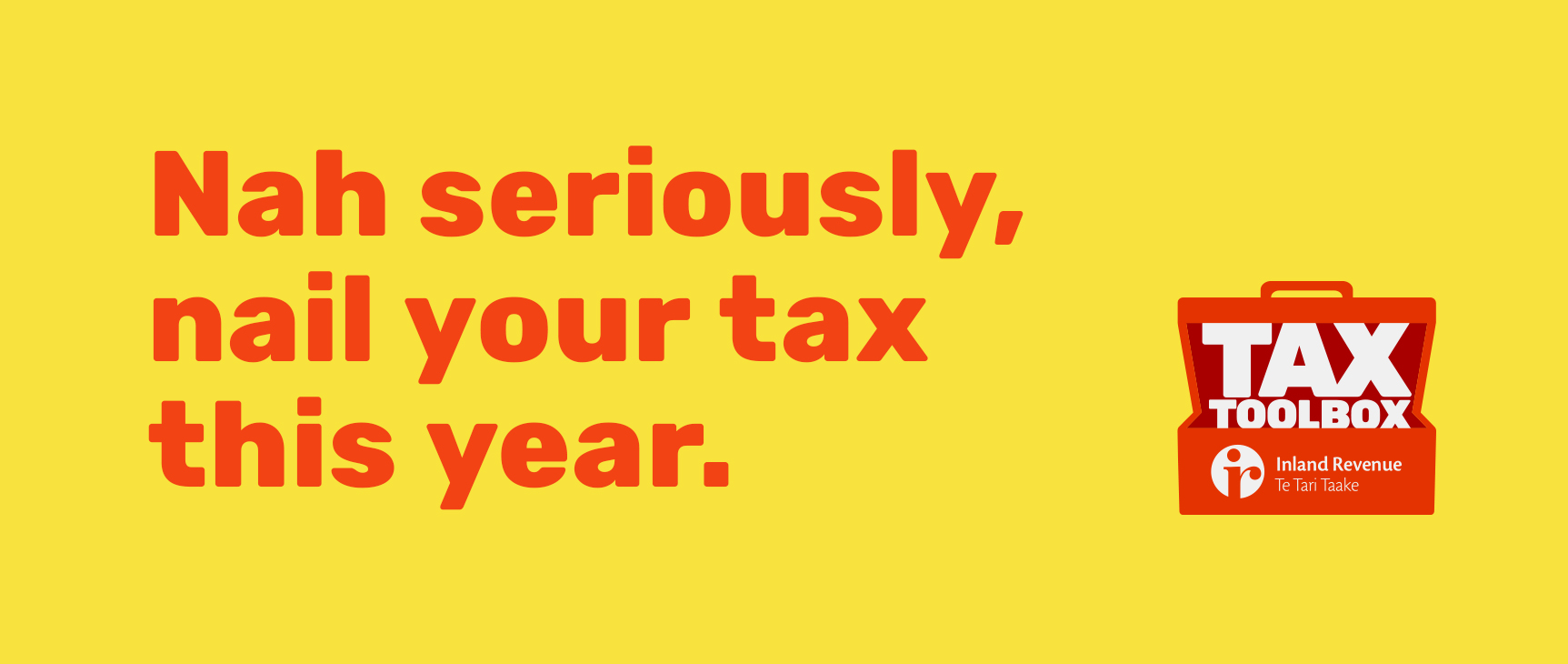Are you a self-employed tradie or running a construction business? Or maybe you're someone who helps a tradie keep on top of their books? We know you’re good on the tools. Take your tax as seriously as your trade by using our Tax Toolbox.
It’s important to keep accurate records. These make it easier to:
- work out your income and expenses
- work out your GST (if you’re GST registered)
- meet your employer obligations if you have staff
- confirm your accounts.
Records must be in English or Māori, and you need to keep them for at least 7 years.
Businesses, including self-employed contractors, get taxed on their income minus any business expenses and other claimable deductions. You will need to keep a record of your expenses and income (for example, invoices and receipts).
Watch this helpful video to get an idea of what tradie tools and other expenses can and can’t be claimed.
Like all working New Zealanders, tradies need to pay tax on all income they earn, including cash jobs. If you have overdue returns or debt owing, cut the excuses and nail your income tax now.
Tip: Make your life easier by paying income tax on a cycle to suit your cashflow, rather than waiting until the end of the tax year.
If you’re self-employed or a sole trader
Individual income tax return – IR3
Complete my individual income tax return – IR3
If you’re running a construction business
Income tax for businesses and organisations
Companies income tax return – IR4
If you’re in partnership with another tradie
Partnerships and look-through companies income tax return – IR7
If you’re operating under a Trust
File a Trust or estate income tax return – IR6
Additional reporting requirements for NZ domestic trusts
Have any debt owing?
Don’t dig yourself a hole. Pay now before your debt gets out of control.
Tip: If paying off your debt in one go is too much, you can apply for an instalment arrangement which allows you to pay your debt off over time. An instalment arrangement also helps you avoid further late payment penalties.
Apply for an instalment arrangement
Provisional tax
Provisional tax means paying your income tax in instalments, not in a lump sum at the end of the year. We’ll ask you to pay provisional tax if last year's tax bill was more than $5,000.
If you're self-employed or in business, once your turnover is $60,000 or more a year you need to register for GST, charge 15% GST on your sales and income, file GST returns and pay it to us. You can claim GST back on your purchases and expenses.
Tip: Make your life easier by working out your GST on each dollar earned, then set this money aside in a dedicated bank account on a regular basis. Remember the GST filing frequency you’ve chosen and pay as you file.
Have outstanding GST returns or debt? Don’t paint over the cracks, get your GST sorted now.
GST guide - IR375
If you’re running a construction business and employing people, you need to make deductions from employees' pay and send the information to us.
Tip: Consider your payroll cycle and whether it needs to be weekly, fortnightly or monthly. Set aside payroll deductions every pay run so you have PAYE available.
Deductions from salary and wages
Schedular payments
Schedular payments are payments made to independent contractors, with withholding tax deducted. If you're hiring independent contractors, you need to deduct withholding tax and pay it to us on behalf of your contractor.
Do you offer benefits to employees or shareholder-employees? For example, motor vehicles available for private use? You may need to pay fringe benefit tax (FBT) on these.
Make sure you understand your FBT obligations.
Did you take out a Small Business Cashflow Scheme loan during COVID-19? Check your loan balance and start making repayments. You have 5 years from your loan’s date of approval to pay off the loan.
Seminars and business advisory visits
Request a business advisory visit
You can request a business advisory visit to learn more about your tax obligations and one of our people will come to you. We have community compliance officers based at all our offices around New Zealand.
Request a business advisory or social policy visit
Register for a seminar
We offer regular online and in-person seminars focused on topics like ‘Introduction to Business’, ‘GST’ and ‘Employers’.
Check out what's available.
Recorded seminars
You can also watch our series of pre-recorded seminars which cover the most common topics for small to medium businesses.
Make life easier with a tax agent or accounting software
We understand you’re on the tools during the day and the job can be hard yakka.
A tax agent or accounting software:
- saves you time, especially at the end of the tax year
- is efficient and cost-effective
- lets you focus on your business and making money.
The benefits of getting expert advice and better returns in your business will increase over time.
Putting past tax returns right - voluntary disclosures
Every transaction leaves a trail. Forgotten some income off your past tax returns, inflated your expenses, or perhaps you remember an error you made in the past?
It’s never too late to do the right thing - get in touch with us sooner rather than later. By making a voluntary disclosure, you may have penalties reduced and you’ll keep your good business reputation intact.


